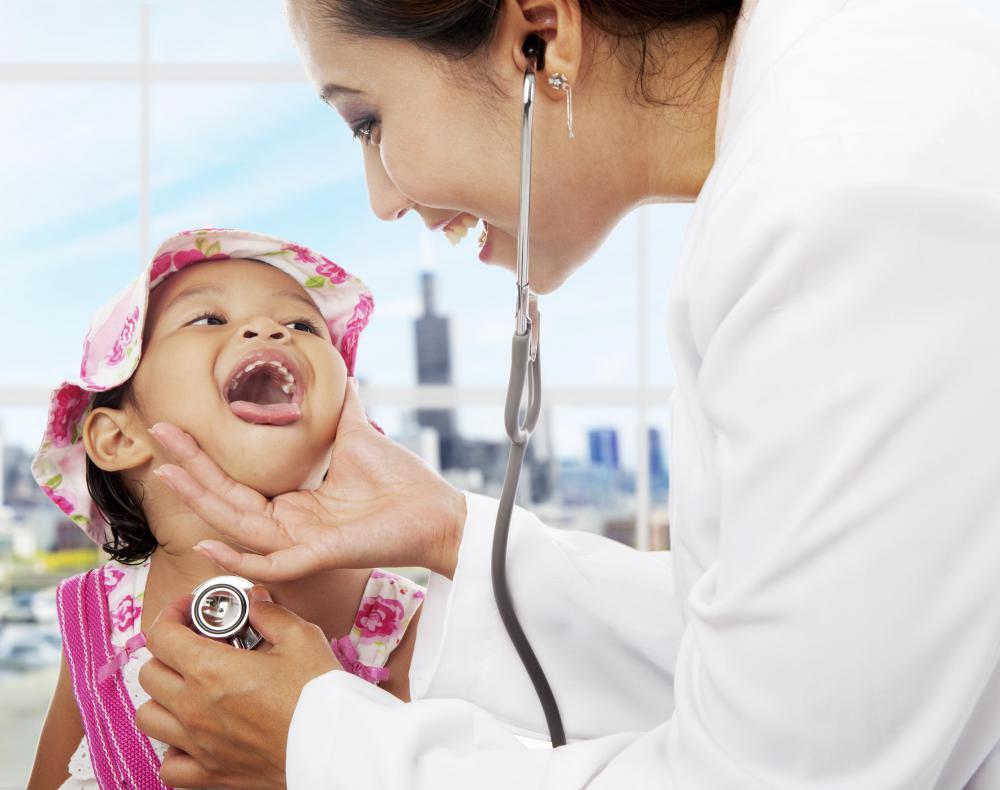At WiseGEEK, we're committed to delivering accurate, trustworthy information. Our expert-authored content is rigorously fact-checked and sourced from credible authorities. Discover how we uphold the highest standards in providing you with reliable knowledge.
What are the Recommended Child Immunizations?
Hepatitis B may be one of the first child immunizations administered if a baby's mother is infected with the virus. Vaccinations against polio, diphtheria, and pneumococcal conditions are recommended to begin at about the second month of a child's life. Vaccines for popular childhood diseases such as measles and chickenpox are usually administered after a child reaches one year of age.
Hepatitis B vaccine is one of the child immunizations recommended during the first two months of a child's life. In instances when the mother is infected with this liver damaging virus, it is recommended that the baby be given the vaccine on the day of her birth. Completion of this vaccination requires three injections, which are generally administered several months apart. Babies do not usually experience any serious side effects from this vaccine.

The pneumococcal conjugate vaccine (PCV) is another whose administration is recommended to begin by the second month of a baby's life. This vaccine can prevent conditions such as pneumonia and bacterial meningitis. Completion of this vaccination requires four injections. Each of the first three injections are administered two months apart and the last may be given when the child reaches a year. This vaccine may cause a child to develop a fever and some children may experience allergic reactions to it.

The D Tap is a combination vaccine administered to prevent diphtheria, tetanus, and pertussis. The first injection should generally be administered when a baby is two months old. Five more injections are recommended before the child reaches six years of age. Between the ages of 11 and 12, a child should receive a booster shot called the Tdap. The Centers for Disease Control and Prevention (CDC) says that when these child immunizations are given to children who have suffered from seizures that aspirin-free pain relievers should also be administered beginning at the time of the vaccination and continuing for 24 hours according to the directions on the drug package.

The inactivated poliovirus vaccine, or IPV, is recommended for the prevention of polio. Injections should begin when a child is two months and a complete vaccination will require three additional injections before the child reaches seven years of age. These child immunizations are not recommended for children who are highly allergic to neomycin, streptomycin, or polymoxin B.

The MMR vaccine, which prevents measles, mumps, and rubella, is one of the child immunizations administered when a child is a year old. A second injection is needed between the ages of four and six. Many people express concern about these vaccines because some say that there is a connection between the medication and autism. The National Library of Medicine says that there is no evidence to support claims of this link. This vaccine is commonly required for entry into public schools in the United States (US).

Chickenpox is an infection characterized by hundreds of itching blisters that cover the body. Varicella vaccine, which prevents this infection, is another of the child immunizations administered after a child reaches the age of one. A booster shot is usually given before the child reaches age seven. There are chances that children who receive these shots will develop rashes, but these do not generally require any treatment. This shot may also be required before entering school in the US.
AS FEATURED ON:
AS FEATURED ON:



















Discuss this Article
Post your comments